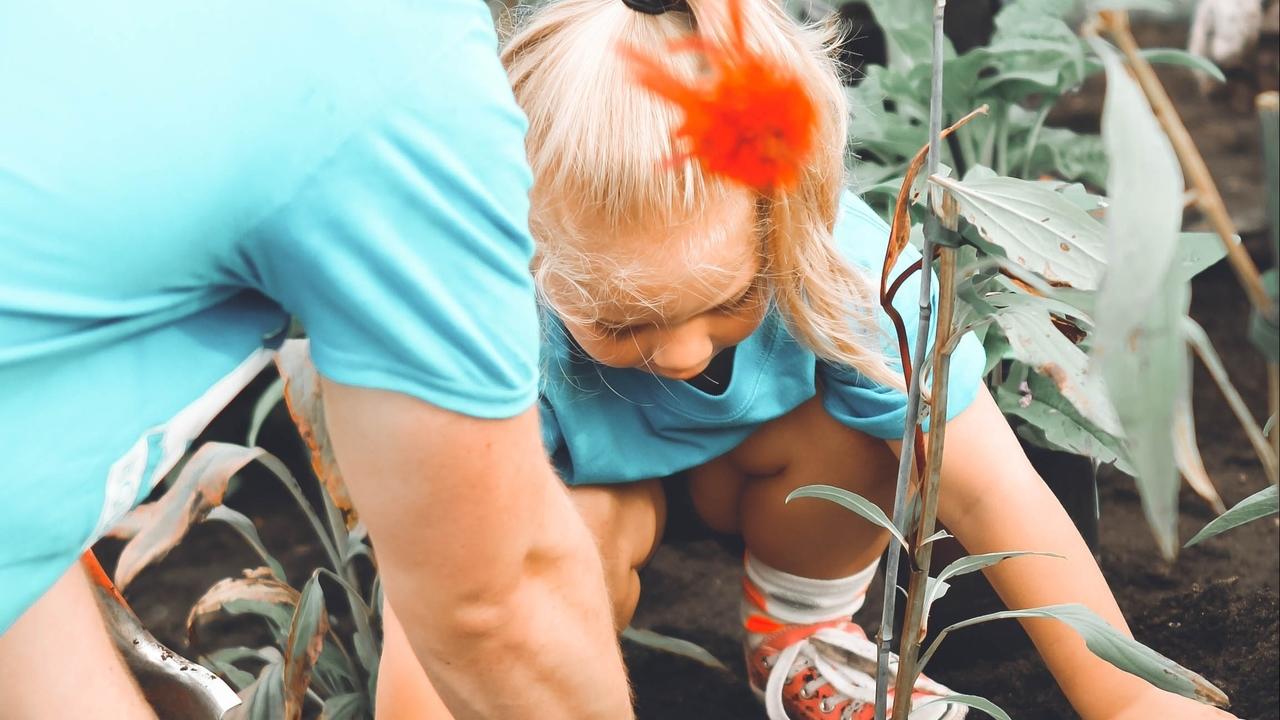Should you tell other people your goals?

The other day, my friend Maddie called to tell me she’d reached her fitness goal of swimming a full mile.
“That’s amazing,” I said. “I didn’t know you were interested in swimming! When did you start training for that?” We’d been talking about fitness goals at the beginning of January, and she hadn’t mentioned this at all.
“Oh, forever ago,” she said breezily. “2018, I think it was. I took a COVID hiatus, but when my building’s pool reopened, I started up again. I wanted to tell you, but I didn’t want to jinx it. I never tell people my goals until after I’ve reached them.”
It was uncanny to hear that, because I’d just heard the exact opposite from my client Tim. “I always start by telling people what I’m doing,” he’d said last week. “That way, I’m on the hook—everyone’s expecting me to do it, so I can’t not.”
Hearing such opposite perspectives made me wonder…Who’s right?
It’s an age-old question: should we tell people our goals?
Some people argue that you must say your goals ou...
Why all your hard work might not be working

The other day, my friend Elizabeth called to tell me about a difficult time she was having at work. She’s the marketing director at an advertising firm, and she was trying to recreate a super-successful marketing campaign she’d run a few years ago – one that had won her multiple awards plus a hefty raise.
“I blew that campaign out of the water,” she said, “so I know I can do it. But I just can’t seem to get it right this time. Nothing is jiving…My team isn’t coming up with good ideas; I can’t seem to give them any useful feedback…I don’t get it! What am I doing wrong?”
This is common phenomenon that tends to happen when we try to recreate an earlier success. We think we got this; we think it should work, because it worked before, right? But then we end up frustrated and confused about why things aren’t going as planned.
It worked once before…shouldn’t it work this time?
It happened recently to my client, Penny, who got super healthy at the beginning of the pandemic. She cut out sug...
The 3 biggest reasons people aren’t manifesting their dreams

Many, many people I meet tell me they have doubts about manifesting. “If it’s as simple as it sounds,” they say, “why isn’t it working? I visualize what I want, but then nothing happens.”
That can be so frustrating. I get it because I’ve been there. The good news is, the reasons that manifesting doesn’t seem to “work” are pretty simple – and once you understand them, you can fix them.
The 3 biggest reasons why people aren't manifesting what they want boils down to these:
- They’re not connected to their why. If you try to manifest something that’s not a true core desire, then chances are, it’s not going to show up anytime soon. The things you manifest must come from your deepest core self – not from some surface-y, flippant place of “oh that sounds cool, I’ll try to manifest it.”
You’ve got to connect with your inner why. Why is that thing so important to you? What will you gain by receiving it? Is it in line with your core values and beliefs?
When you know your why, you’re mor...
A Twist on Gratitude: Benefit Finding

Thanksgiving is in the air, which means there’s a lot of talk around every mindset guru’s favorite topic: gratitude.
Most of us have heard (and hopefully experienced) the life-changing benefits of gratitude: it reduces stress. It boosts our well-being. It’s even good for our immune system. It’s key to a healthy mindset, a happy mood, and a fulfilling life.
And yet, despite how important it is, sometimes it feels like there’s a limited amount of info out there about how to practice gratitude. Most of the time, people talk about keeping a gratitude journal. And while that’s a fantastic tool and I absolutely recommend it (and I even remember to do it sometimes), it’s not the only way.
Today, I want to introduce you to a twist on gratitude – a not-so-common way to shift your mindset toward positivity and thankfulness. It’s called benefit finding.
Here’s how it works.
Your brain is designed to answer the questions you ask it. It’s basically a machine whose purpose is to find what you’r...
The #1 culprit that sabotages our success (and how to conquer it)

Every single time I walk in my front door, my dog Sadie barks like mad. She celebrates with all she’s got. It takes her a full five minutes to calm down, and even then, she’s still panting.
This happens every. Single. Day. Not once has she ever greeted me like, Oh, it’s you again.
Of course, most people’s dogs are like that. For them, you coming home is cause for maximum joy. Pull out all the stops! Kill the fatted lamb! Break out the fine china—Mom’s home from work!
Dogs are always prepared for happiness. They live in a constant state of waiting for something good to happen. And when it does, they don’t hold back. They celebrate the crap out of it.
There’s a name for that magical quality: positive expectancy.
What if we were like that? What if we were more like our dogs, especially when it came to reaching our goals?
Honestly, a lot of adults these days are the opposite. We fall into patterns of negative expectancy so easily. We get irritated about the smallest things. We lower ...
7 ways to deal with rejection

“By the time I was fourteen the nail in my wall would no longer support the weight of the rejection slips impaled upon it. I replaced the nail with a spike and went on writing.”
― Stephen King
Getting rejected can be one of the most painful things we deal with.
Sure, we all know the stories of Abraham Lincoln, Steve Jobs, J.K. Rowling – how those mythical-level geniuses endured rejection after rejection before they reached their mythical-level success. But even knowing that, it can feel like a huge blow. Rejection can be devastating: the disappointment, the shattered hopes, the feelings of powerlessness and “not good enough.”
Yet those feelings don’t have to keep us down. When we handle rejection from a place of empowerment, positivity, and hope, we can turn it around.
We can not only survive it; we can grow from it. We can get out from under its crushing weight, and start to see it in the rearview mirror as that mountain we overcame on the way to our beautiful, sparkling success....
4 ways to get a “Small Self” mindset (and why you want to)

If you’re like me, and about a gazillion other people right now, you might be completely dreading winter.
For many, winter is hard enough in “normal” years. It means less outside time, short dreary days, and seasonal affective disorder. This year, though, it’s poised to be especially difficult, with the tumultuous political climate and the threat of another lockdown.
Fortunately, I have good news: no matter what’s going on in the world, you are not powerless.
Your choices, thoughts, and actions impact how you feel, and how those around you feel.
Let me reiterate that: You are never powerless.
Today, I want to introduce you to an idea known in psychology as “small self.” This is an important idea because by tapping into it, we can free ourselves from those feelings of sadness, helplessness, and anger. We can open ourselves up to feelings of wellbeing, possibility, happiness, and joy.
Even in the dead of winter, we can choose to feel alive – by choosing a small self mindset.
What ...
The #1 thing that stops us from starting

This summer, I had the privilege of working with Shauna, a stay-at-home mom whose dreams of going back to work were completely trampled by Covid.
“I left my career in finance eleven years ago to raise my children. When they were old enough, I started to home-school them,” she told me over the phone. “The plan was always for me to go back to work when they reached high school, but my husband’s job isn’t doing well with the pandemic, and I just don’t know if I’ll ever get to go back to work. Or even work on the things I want to work on.”
“What are some of those things?” I asked.
“I’ve always wanted to start a business,” she said. “I’ve had different ideas over the years. Lately I’ve been thinking that I’d really like to write a home-schooling curriculum and sell it. There’d be support to other parents in the form of an online community, and interactive field trips cross-referenced by age group and subject, maybe get sponsorships from local businesses…” She rattled off a long list of b...
The 6 Core Needs You Didn’t Know You Needed

We tend to think we know what we need in life: food, water, and shelter. Or, to take a more enlightened view, we know we need meaning, love, and fulfillment.
On a daily basis, we know we need to get the kids ready for school, send out that email that’s been nagging us, get to the doctor’s on time.
But there are actually six core needs that many of us aren’t even aware of – or rather, we might be aware of them, but we don’t how much they drive our actions and determine our level of happiness.
These six needs operate at the most fundamental level of our being. They drive us toward certain goals and behaviors and away from others, causing us either deep joy or deep frustration and sadness.
What are these six needs, you ask?
Let’s take a look at them now.
1. Certainty. We all need some level of consistency, predictability, knowing what to expect – especially when it comes to money, home life, and core relationships.
2. Significance. We all need to feel like we’re important – that ou...
Is your passion hurting or serving you?

Carla sat across from me in my office, looking miserable. Her dark hair hung limp over her eyes, which were fixed on the floor between us. She looked nothing like the radiant, confident woman I’d seen on camera a few weeks before. She’d sent me her audition reel, because what she wanted, she said, was an acting coach. Now, meeting her in person, I could tell she needed more than acting tips.
“Tell me about yourself,” I said, and after a minute or so, she began to open up.
Carla told me about how she’d gone into acting because she loved performing in her high school musicals. She just lived for that feeling of getting into character, rehearsing with her fellow actors, and stepping out onto the stage. From the first rehearsal until closing night, she was in “flow.”
That’s what she wanted to feel when she moved to New York to pursue acting. But now, five years in, she was depressed, out of work, and starting to lose hope.
“I don’t get it,” she said. “I work so freaking hard. I do ever...


